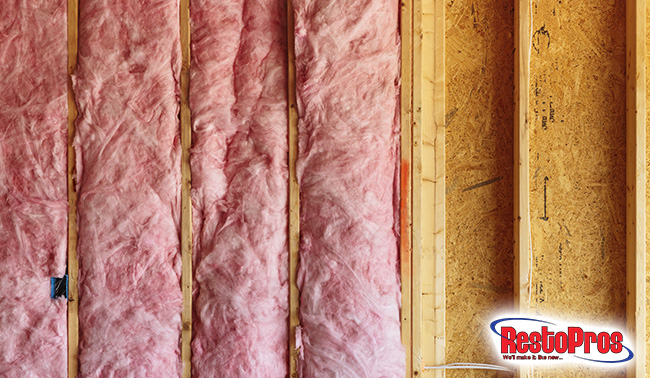
If you typed “Can mold grow in insulation?” into your preferred search engine, one of two things is happening: 1. You’re generally a curious person and a big fan of the show How It’s Made, or 2. You think you’re experiencing mold symptoms, and you’re trying to find the source. Your allergies are going crazy—but only when you’re indoors and none of your usual triggers are present. You feel itchy and short of breath. You may even detect a slight mildew smell. But you’ve checked everywhere and can’t seem to spot any water damage that might indicate mold growth in your home. So, can mold grow in insulation? Let’s find out:
How Does Mold Grow?
Mold is a fairly simple organism. All it needs in order to grow, survive, and thrive is warmth and moisture. Anywhere in your home that can get warm and wet can suddenly become the ideal habitat for mold. Areas in your home that can become subject to these conditions include:
- Attics
- Ceilings
- Exterior-facing walls
- Walls covering water pipes
- Cabinets beneath sinks
- Showers
- Insulation
Can Insulation Become Warm and Wet?
Unfortunately, the answer is yes. While you want your insulation to be warm, you never want it to be wet, so how does this happen?
In short, leaks make mold growth possible. A leak in your roof can bring moisture into your attic, which houses quite a lot of your insulation. A leak in an exterior-facing wall can allow water to saturate your insulation. A burst pipe in a wall can cause soggy insulation as well.
By design, your insulation traps in heat, so just a little water can go a long way for mold growth.
How Can Mold Growth in Insulation Cause Allergies?
OK, so now we know mold can grow in your insulation. But how can mold inside your walls be triggering your allergies and negatively impacting your respiratory system? After all, you never go digging around in there, so how can mold growth there affect you if you never come in direct contact with it?
Just being in close proximity to mold, even with a barrier between you, can provide side effects, eventually. However, your ventilation system speeds up the process by circulating the air evenly through your home, even parts of your home with exposed insulation like your attic. Ironically, a healthy HVAC system could be partly to blame for your allergies.
How to Remediate Mold
If you believe you have mold growing in your home, you should never try to remove or remediate it yourself. Being around mold, generally speaking, is hazardous to your health. Not only can it cause allergies, but it can also lead to serious respiratory issues. When you hire a mold remediation specialist, they’ll discover the source of the mold growth and, using their expert training and specialized equipment, remove and remediate the mold safely. When you need mold remediation services, call RestoPros. We put in the hard work, so you and your family can breathe easy.
